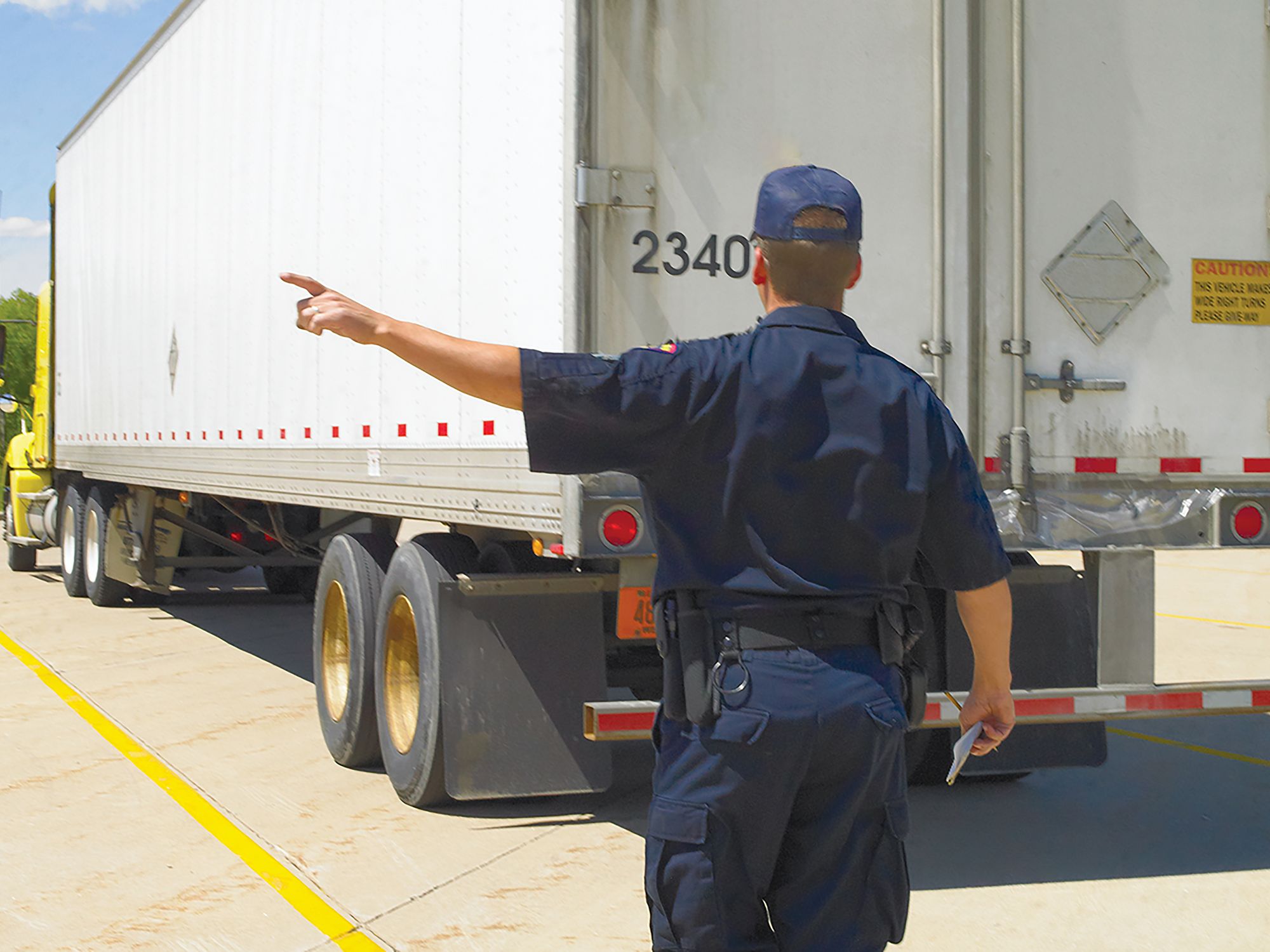Who is subject to FMCSA enforcement?

- All employers, employees, and drivers who operate CMVs must comply with the FMCSRs.
- The regulations are enforced by a combination of state, local, and federal agencies.
Compliance with the Federal Motor Carrier Safety Regulations (FMCSRs) is required of all employers, employees, and drivers operating commercial motor vehicles (CMVs). A “commercial motor vehicle” is any self-propelled or towed motor vehicle used on a highway in interstate commerce to transport passengers or property when the vehicle:
- Has a gross vehicle weight rating (GVWR), gross combination weight rating (GCWR), gross vehicle weight (GVW), or gross combination weight (GCW) of 10,001 pounds or more, whichever is greater; or
- Is designed or used to transport 9 or more passengers (including the driver) for compensation, or 16 or more passengers (including the driver) not for compensation; or
- Is used to transport hazardous materials in a quantity requiring placarding.
Intrastate operations
Carriers and drivers engaged in intrastate-only commerce (within the borders of a state) are not generally subject to the Federal Motor Carrier Safety Administration’s (FMCSA’s) jurisdiction or the monitoring and enforcement programs that apply to interstate operations (except in the case of drivers transporting placarded hazardous materials). Instead, these carriers and drivers are subject to state and local CMV laws and regulations, which are generally compatible with — but not always identical to — the FMCSRs. Some states, for example, exempt CMVs that weigh less than 26,001 pounds.
Who can enforce the FMCSRs?
To ensure that federal CMV safety regulations are enforced, the FMCSA relies on state and local transportation agencies, in addition to its own safety investigators stationed at FMCSA Field Offices in each state. Although any officer of the law can stop a truck or bus on the roadside and issue a citation, only certified officers and investigators can conduct official audits or investigations or conduct roadside inspections that result in compliance data being uploaded to FMCSA. Information on officer certification requirements can be found in Part 385, Subpart C.
The FMCSA helps pay for state and local CMV enforcement programs through the Motor Carrier Safety Assistance Program (MCSAP). To qualify for MCSAP funds, states must have and enforce CMV safety laws that are equivalent to and compatible with the FMCSRs. See:
